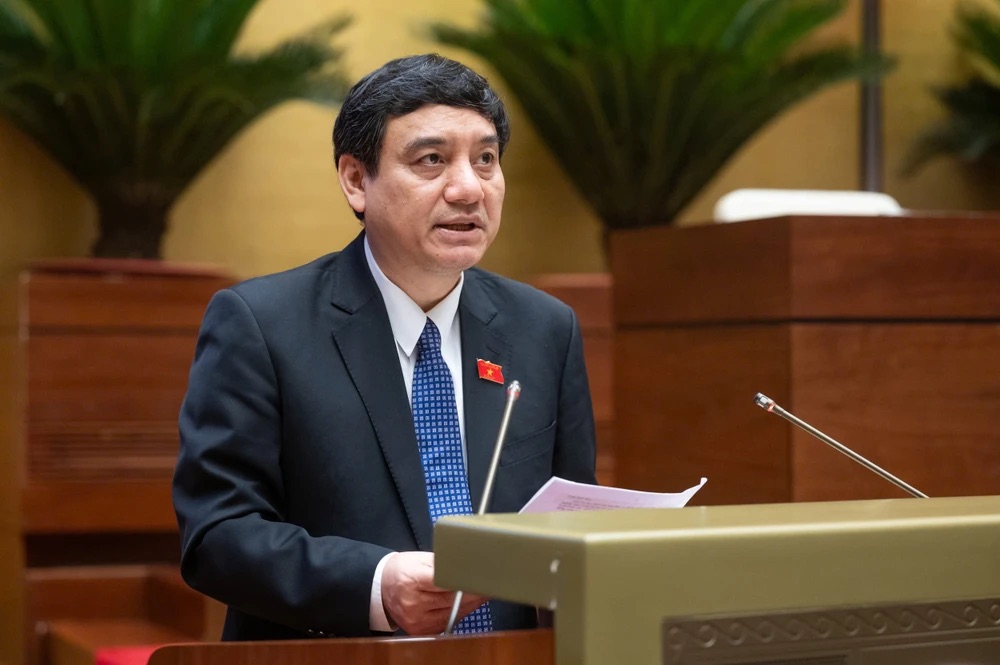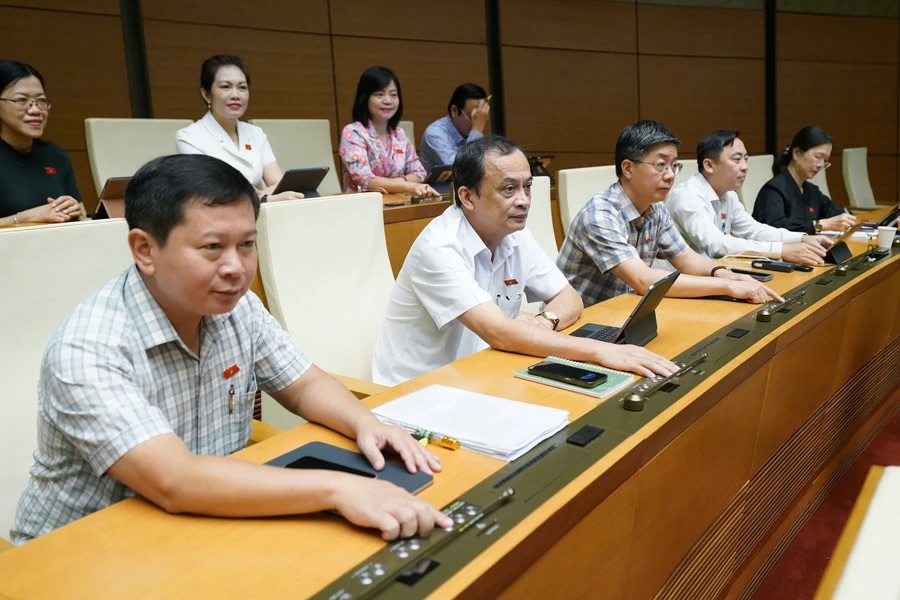The results of the electronic vote showed that 455/459 delegates present voted in favor, accounting for 95.19%. Thus, the National Assembly has officially passed the Law on Employment (amended).
Article 39 of the recently passed Law stipulates:
"The monthly unemployment benefit is equal to 60% of the average monthly salary for unemployment insurance contributions of the 06 most recent months of unemployment insurance contributions before termination of labor contracts, employment contracts or termination of employment, but not exceeding 05 times the minimum monthly salary by region announced by the Government applied in the last month of unemployment insurance contributions".
Regarding this content, Chairman of the National Assembly's Committee on Culture and Society Nguyen Dac Vinh said that there are opinions suggesting raising the monthly unemployment benefit level to a minimum of 65% and allowing the Government to adjust it to a maximum of 75% in cases of large-scale economic crises and epidemics.

There are opinions suggesting increasing the benefit level to 70% but not exceeding 5 times the regional minimum wage and for every 06 months of unemployment insurance payment, they will receive an additional 01 month of unemployment benefits but not exceeding 12 months.

Through review, the National Assembly Standing Committee believes that the unemployment insurance fund has been accumulated mainly from the previous period, due to annual support from the State budget, at that time, the number of beneficiaries of the regimes was still small. However, from 2020 to now, the annual collection and expenditure of unemployment insurance has been balanced.
According to the experience of countries that have successfully implemented unemployment insurance or employment insurance policies (Canada, Korea, Japan, Thailand, etc.) and international standards on unemployment insurance, the unemployment benefit level is not less than 45% of previous income or not less than 45% of the minimum wage as prescribed or the salary of normal workers but not less than the basic minimum living standard; the minimum unemployment benefit period is 12 weeks (3 months) for a period of 12 months.
The Labor Code (Articles 47 and 48) stipulates the responsibility of employers in paying severance pay to employees who have worked regularly for 12 months or more (each year of work is entitled to 1⁄2 month's salary allowance (50% of salary level)) and unemployment allowance for employees who have worked regularly for 12 months or more (each year of work pays 1 month's salary (100% of salary)) but must be at least equal to 2 months' salary (minimum 200% of salary level).
The benefit level is 60% of the average monthly salary for unemployment insurance contributions in 3 months in accordance with international practices and the allowances that employees receive when they lose their jobs according to current regulations.
This level ensures that employees reduce difficulties, stabilize their lives during unemployment until they find a new job; in accordance with the principle of contribution - benefit and the ability to balance revenue and expenditure of the Unemployment Insurance Fund.
"Therefore, the National Assembly Standing Committee would like to keep it as in the draft Law" - Mr. Nguyen Dac Vinh informed.
Regarding the subjects of borrowing capital for job creation support policies (Article II), some opinions suggest expanding or prioritizing loans in Article 9 for enterprises and production and business establishments employing many female or female-led workers; employing many elderly workers; start-ups and innovation enterprises.
There are opinions suggesting expanding the subjects eligible for loans to support job creation, maintenance, job expansion and work abroad with preferential interest rates, such as: people from households that have just escaped poverty, people from near-poor households; ethnic minorities in poor households in areas with special difficulties; freelance workers, informal workers, digital platform workers...
In response to the opinions of National Assembly deputies, the draft Law has been revised in the direction of assigning the Government, based on the socio-economic situation and the requirement for loans to solve employment, to decide to expand the subjects eligible for loans with lower interest rates and shown in Point d, Clause 3, Article 9 and Point c, Clause 4, Article 9.
This Law takes effect from January 1, 2026.








